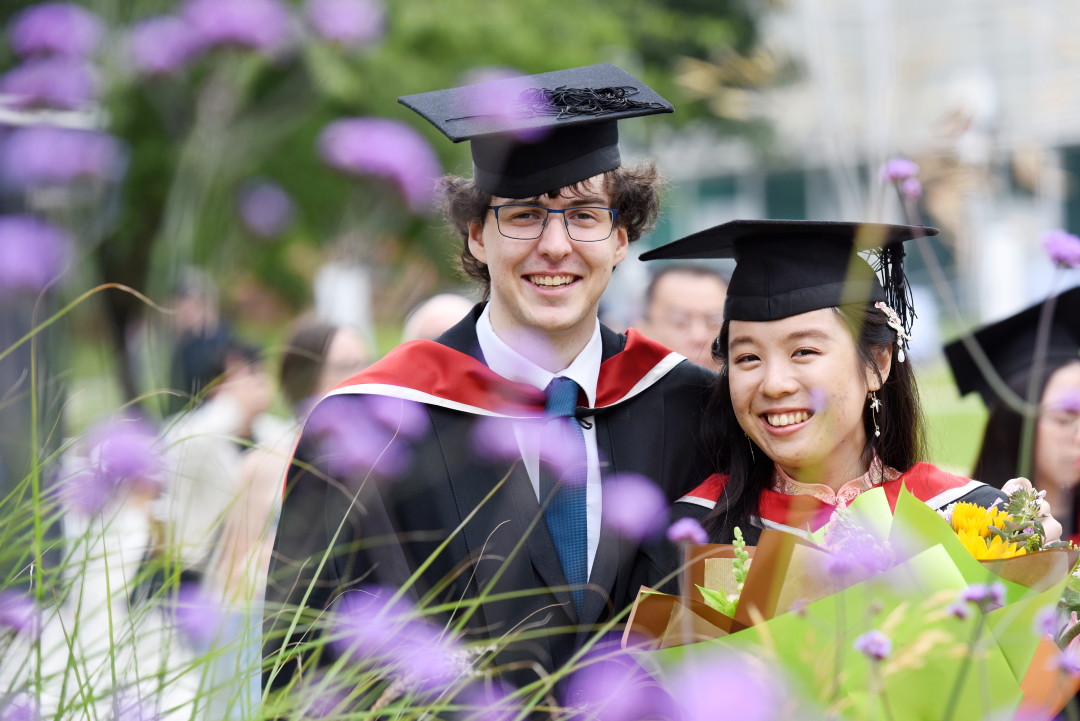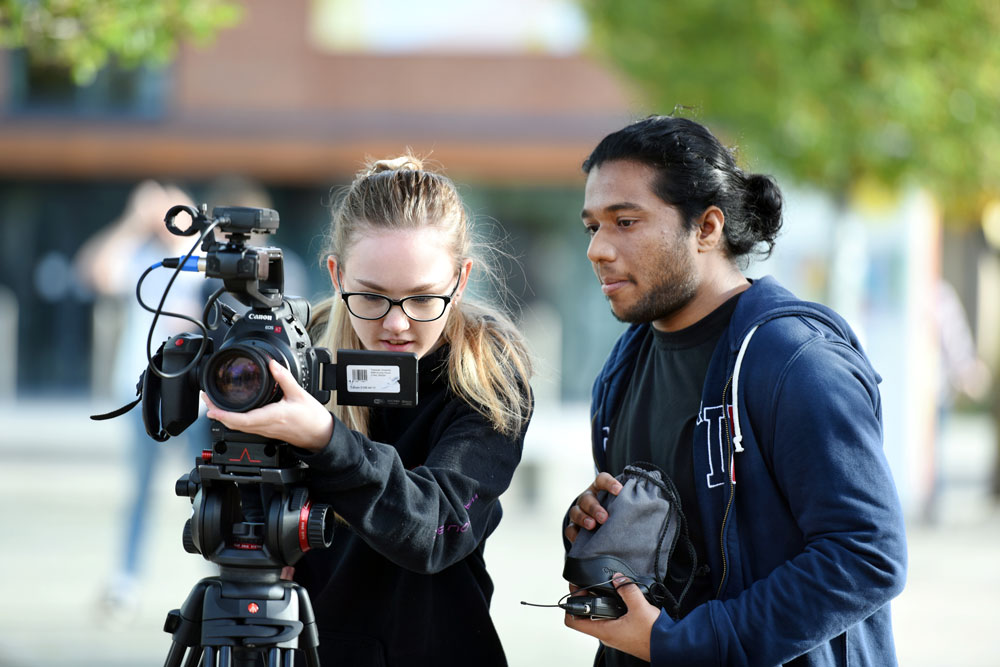Lectures and seminars
When you think of the traditional university experience, you probably think of lectures and seminars. Lectures are typically held in a lecture theatre/hall with large rows of seating facing the lecturer, and students take important notes in these sessions. Seminars usually follow a lecture and are more interactive on a smaller scale in a classroom. Students engage in tasks related to the content covered in the lecture and can discuss topics and ideas with lecturers.
Online learning
Teesside University Online Learning (TUOL) allows you to study where and when you want. Our TUOL model has no fixed schedule allowing you to fit study around your life, making access to learning simple for those whose other commitments would make studying a traditional on-campus degree difficult.
Practical work
As you’re probably aware by now, university doesn’t just mean sitting in lectures from nine to five, followed by an evening hunched over a table reading books. You can also choose a course that breaks things up with practical sessions such as workshops. Alongside lectures, this gives you the freedom to explore your practical skills, enhancing your employability when entering the industry.
Placements
Courses with practice placements allow you to put the theory you have learnt in university into practice. You gain valuable learning experiences and specialised training, developing your skills while working alongside experienced staff in the field.
Group work
Learning through collaboration with your coursemates is a great way to bring together different skills, knowledge, ideas and experiences. It helps you build essential skills such as teamwork, communication and negotiation, preparing you for the world of work.
Part-time
Having a life shouldn’t stop you from studying for a degree; in many cases, it doesn’t. You might not be able to afford to give up your job to study, even with the financial support available. You might have other priorities such as raising a family or maybe you simply just want to take your time to study. If this sounds like you, then you should look at studying part-time. You won’t miss anything, you’ll just be taught over a longer period rather than the more standard three-year route.
Degree apprenticeships
If you’re seeking an opportunity to earn a degree while gaining practical work experience, a degree apprenticeship is an excellent choice. You blend academic study with work-based skills and knowledge, applying theoretical concepts in real-world settings.
Through collaboration with employers, we develop programmes that align with industry needs, ensuring you are well-prepared for the workforce and have a competitive edge in the job market.
Our apprenticeships focus on employability and industry relevance, providing a clear pathway to a rewarding and successful career. You meet with your Apprenticeship Quality Coach at points throughout the apprenticeship, who can offer insights, advice and encouragement as you balance work and study. They can guide your professional development and support your progress.
By Grace, Niamh, Oli & Tom.




